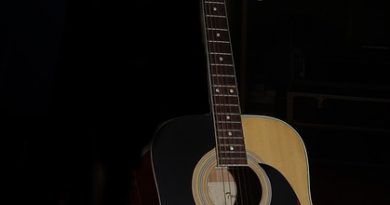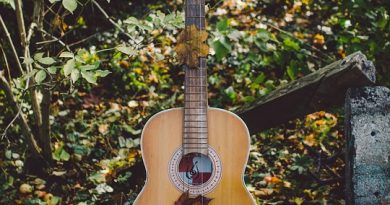Mastering the Basics: A Beginner’s Guide to Creating a Guitar Practice Routine
Mastering the Basics: A Beginner’s Guide to Creating a Guitar Practice Routine
For beginners looking to master the guitar, having a consistent practice routine is essential. It not only helps to build your skills but also keeps you motivated and on track with your learning. In this guide, we will walk you through the basics of creating a guitar practice routine that will help you progress in your playing.
1. Set Realistic Goals
The first step in creating a guitar practice routine is to set realistic goals for yourself. Think about what you want to achieve with your playing, whether it’s learning a specific song, mastering a particular technique, or becoming a better overall guitarist. Break down your goals into smaller, achievable steps that you can work towards each day.
2. Determine Your Practice Time
Once you have set your goals, the next step is to determine how much time you can commit to practicing each day. Ideally, you should aim to practice for at least 30 minutes to an hour each day. However, even just 10-15 minutes of focused practice can make a difference in your progress. Find a time of day that works best for you and make practicing a part of your daily routine.
3. Warm-Up Exercises
Before you dive into practicing specific techniques or songs, it’s important to warm up your hands and fingers. Start your practice session with some simple warm-up exercises to get your blood flowing and prepare your muscles for playing. This can include finger exercises, scales, or simple chord progressions.
4. Practice Fundamentals
Building a strong foundation is key to becoming a proficient guitarist. Make sure to dedicate time in your practice routine to work on fundamental techniques such as proper hand position, strumming patterns, chord changes, and scale practice. These skills may not be the most exciting to practice, but they are essential for developing your overall playing ability.
5. Learn New Material
One of the most enjoyable aspects of learning the guitar is playing songs that you love. Incorporate learning new material into your practice routine to keep things interesting and challenging. Choose songs that are appropriate for your skill level and work on breaking them down into manageable sections. Slowly build up your proficiency with each section before putting the entire song together.
6. Focus on Technique
Effective practice involves focusing on specific techniques that you want to improve. Whether it’s working on your picking speed, mastering barre chords, or developing your fingerpicking skills, dedicate time in your routine to focus on these areas. Break down the technique into smaller exercises and practice them repeatedly until you feel comfortable with them.
7. Ear Training
Developing your ear is an important aspect of becoming a well-rounded musician. Spend time in your practice routine working on ear training exercises such as identifying intervals, chords, and melodies by ear. This will help improve your musicality and make it easier for you to learn songs by ear in the future.
8. Experiment with Different Styles
While it’s important to focus on building a strong foundation in your playing, don’t be afraid to experiment with different styles of music. Trying out different genres and techniques can help broaden your musical horizons and keep your practice routine interesting. Challenge yourself to learn a new style or technique outside of your comfort zone.
9. Record Yourself
Recording yourself while practicing can be a valuable tool for self-assessment. Listening back to your playing can help you identify areas for improvement and track your progress over time. You may also discover strengths and weaknesses in your playing that you were not aware of. Consider recording yourself regularly as part of your practice routine.
10. Stay Consistent
Consistency is key when it comes to mastering the guitar. Make practicing a priority in your daily routine and strive to stick to your practice schedule as closely as possible. Remember that progress takes time, so be patient with yourself and celebrate small victories along the way. With dedication and persistence, you will see improvements in your playing over time.
In conclusion, creating a guitar practice routine is essential for beginner guitarists looking to improve their skills. By setting realistic goals, dedicating time to practice, focusing on fundamentals and techniques, and staying consistent, you can make significant progress in your playing. Remember to keep your practice routine engaging and enjoyable to stay motivated on your musical journey.






